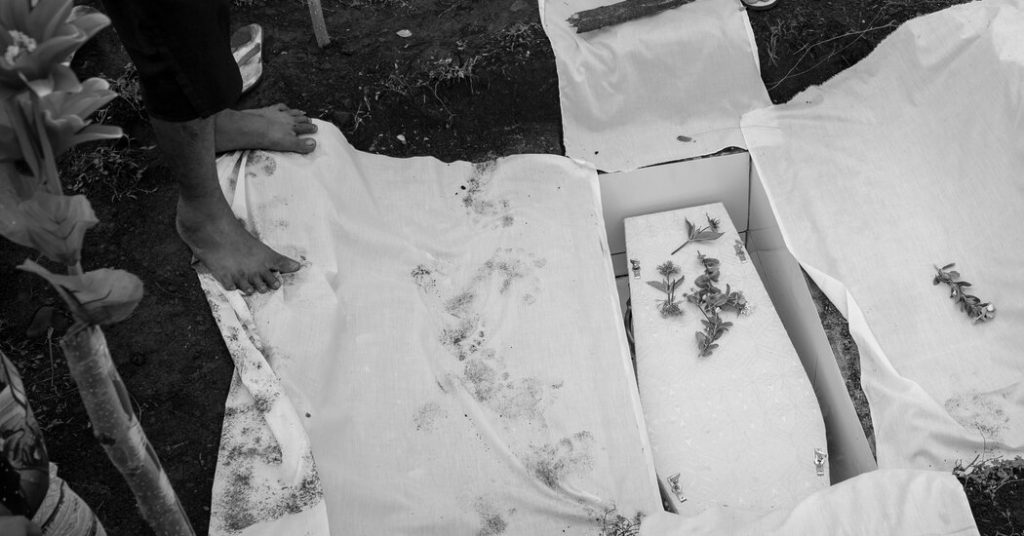In late 2019, a devastating measles epidemic swept across the small Pacific island nation of Samoa, claiming the lives of 83 people, predominantly children. This tragedy, witnessed firsthand by the then-Lieutenant Governor of Hawaii and practicing physician, Dr. Josh Green, underscored the critical importance of vaccination and the devastating consequences of misinformation. The epidemic, sparked by a decline in vaccination rates following a 2018 incident involving improperly prepared vaccines, was further fueled by anti-vaccine activists, including Robert Kennedy Jr., who disseminated false information about vaccine safety. This misinformation campaign preyed on the fears of parents, leading to widespread vaccine hesitancy and ultimately, the resurgence of a preventable disease. Dr. Green’s experience in Samoa served as a stark reminder of the fragility of public health and the vital role of vaccines in safeguarding communities.
Dr. Green, recalling his experience serving underserved communities in Hawaii, emphasized the power of preventative healthcare and the undeniable efficacy of vaccines. Maintaining vaccination rates above 95% creates herd immunity, shielding entire populations from infectious diseases. However, the erosion of public trust in vaccines, often fueled by misinformation campaigns, can quickly dismantle this protection, leaving communities vulnerable to outbreaks. Samoa’s measles epidemic became a tragic case study in this phenomenon, demonstrating how quickly a preventable disease can spiral out of control when vaccination rates plummet. The speed and severity of the outbreak overwhelmed Samoa’s healthcare system, leaving families to cope with the devastating consequences of a disease that could have been avoided.
Responding to Samoa’s urgent plea for assistance, Dr. Green spearheaded a rapid response effort, mobilizing a team of 75 volunteer medical professionals from Hawaii, along with essential medical supplies and vaccines. Within 48 hours, the team arrived in Samoa, working tirelessly alongside local healthcare workers to vaccinate tens of thousands of people. Their efforts, a remarkable testament to international collaboration and the dedication of healthcare professionals, helped curb the epidemic. This swift and decisive action, coupled with Samoa’s renewed focus on vaccination, ultimately brought the outbreak under control, highlighting the power of coordinated public health interventions. However, the scars of the epidemic remained, a somber reminder of the human cost of vaccine hesitancy.
The experience in Samoa left a profound impact on Dr. Green, particularly the memory of a young girl who succumbed to measles shortly before the medical team’s arrival. This tragic loss underscored the real-world consequences of misinformation and the urgency of combating it. The girl’s family, grieving their loss, requested that the medical team vaccinate them, demonstrating the enduring belief in the power of vaccines even amidst tragedy. This poignant moment highlighted the importance of trust in healthcare professionals and the vital need for accurate information to guide public health decisions. The girl’s death, a preventable tragedy, served as a stark reminder of the value of each individual life and the collective responsibility to protect vulnerable populations.
The Samoa crisis profoundly shaped Dr. Green’s approach to the subsequent COVID-19 pandemic. As Lieutenant Governor, he prioritized transparent communication and evidence-based information, strategies that proved crucial in combating misinformation and promoting vaccine uptake in Hawaii. The state achieved one of the highest vaccination rates in the nation, resulting in a significantly lower mortality rate. This success underscored the importance of clear, consistent, and factual communication in building public trust and promoting positive health outcomes. Hawaii’s experience demonstrated how effective public health measures, grounded in scientific evidence, can mitigate the impact of even the most challenging pandemics.
Dr. Green’s reflections on these experiences emphasize the profound moral imperative of vaccination and the inherent danger of undermining public trust in these life-saving interventions. He raises deep concerns about the potential appointment of Robert Kennedy Jr., a prominent anti-vaccine advocate, to the position of Secretary of Health and Human Services. Given Mr. Kennedy’s history of disseminating misinformation about vaccines, his appointment could jeopardize decades of progress in public health and potentially lead to a resurgence of preventable diseases. Dr. Green argues that safeguarding public health and protecting vulnerable populations requires a commitment to truth and evidence-based policies, not the promotion of misinformation that undermines trust in one of the most successful public health interventions in history. The lives of countless children, he concludes, depend on it.


